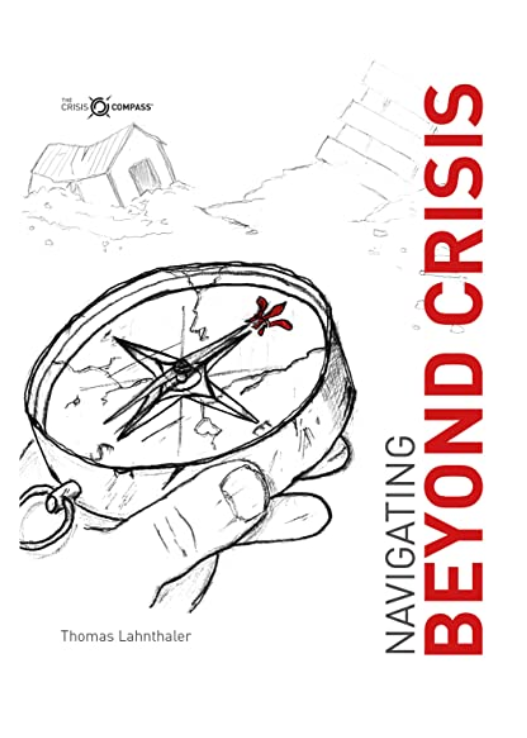I’m not entirely sure I can do justice to this book in my review, but its importance compels me to give it a shot:
I first listened to Thomas Lahnthaler on Myriam Hadnes brilliant podcast workshops.work B.V. “Why Facilitators are Crisis Managers.” Thomas is the founder of The Crisis Compass a consulting firm specializing in tailored strategies for crisis resilience and tailored solutions for in-crisis support.
With years of experience in various global #conflict and #crisis contexts, Thomas has honed his skills in #conflictresolution and #mediation, leading #crisisresponse teams, and coaching and mentoring leaders.
His #crisismanagement expertise extends over two decades across 23 countries, where he led teams in the face of some of the most challenging emergencies our world has seen.
So, how does this relate to my role as a #facilitator? Initially, it seemed tangential, but curiosity led me to a valuable realization: the relevance of crisis management to my work is profound!
For my fellow change agents, strategic thinkers, and leaders, this book is a must-read. I can’t cover all its insights, but I’ll highlight a few key learnings:
🧭 Thomas introduces a resource grid for inventory analysis. Beyond tangible assets like money and connections, he emphasizes the importance of intangible resources like motivation, creativity, and optimism as crisis differentiators.
🧭 The book explores emotions, their critical role, and how they can be leveraged in crises. For instance, “desperation” can fuel creativity and innovation.
🧭 Thomas discusses the distinction between having a plan and habitual readiness. While plans are essential, the ability to adapt is crucial, especially in crisis situations – think COVID. He outlines eight habits that foster readiness and build a crisis-resilient culture.
🧭 The communication section is invaluable for organizations. Thomas highlights common pitfalls and offers practical advice on framing communication effectively, building trust, and maintaining transparency.
In conclusion, I was struck by the book’s redefinition of “crisis.” Typically associated with negativity (economic crisis, housing crisis, opioid crisis…), this book prompted me to reconsider how we assign meanings to words.
I highly recommend this insightful read.
